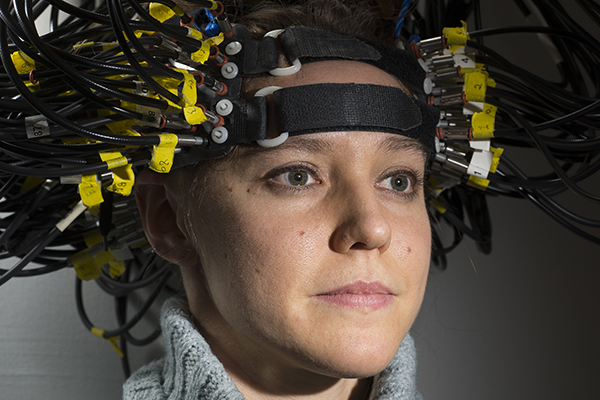Optical brain scanner goes where other brain scanners can’t
Scientists have advanced a brain-scanning technology that tracks what the brain is doing by shining dozens of tiny LED lights on the head. The technique compares favorably to other approaches but avoids the radiation exposure and bulky magnets the others require, according to new research at the School of Medicine.
Brain differences seen at 6 months in infants who develop autism
Researchers have found significant differences in brain development in infants as young as six months old who later develop autism, compared to babies who don’t develop the disorder. The new research, which relied on brain scans acquired at night while infants were naturally sleeping, suggests that autism doesn’t appear abruptly, but instead develops over time during infancy.
Researchers study children at risk for Tourette syndrome
Neuroscientists at Washington University School of Medicine in St. Louis are studying children who may be at risk for Tourette Syndrome due to the onset of motor and/or vocal tics. Many kids develop tics that later disappear, but the researchers want to learn why for some, those tics represent the beginnings of Tourette Syndrome.
Brain’s ‘resting’ network offers powerful new method for early Alzheimer’s diagnosis
Image courtesy of Cindy LustigParts of the brain involved in a “resting network” show large differences between young adults, older adults, and people with Alzheimer’s disease.Researchers tracking the ebb and flow of cognitive function in the human brain have discovered surprising differences in the ability of younger and older adults to shut down a brain network normally active during periods of passive daydreaming. The differences, which are especially pronounced in people with dementia, may provide a clear and powerful new method for diagnosing individuals in the very early stages of Alzheimer’s disease.

